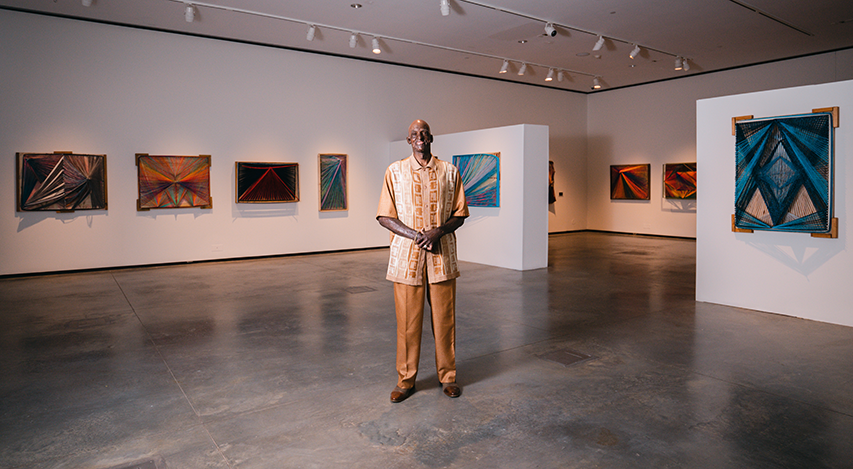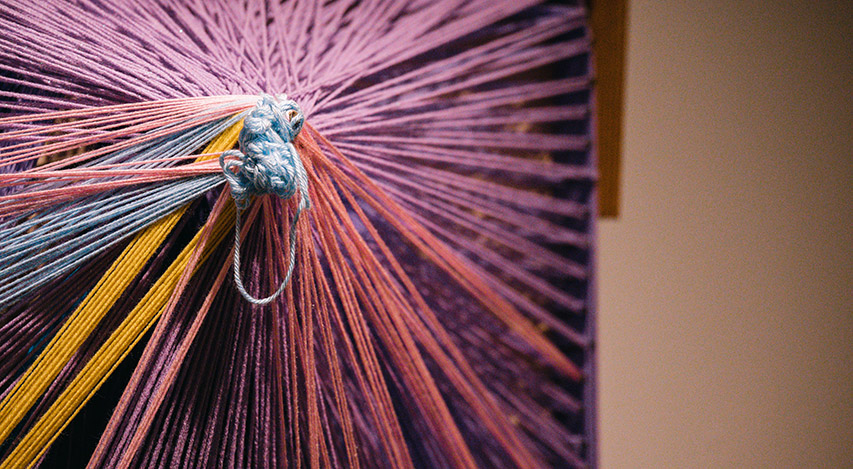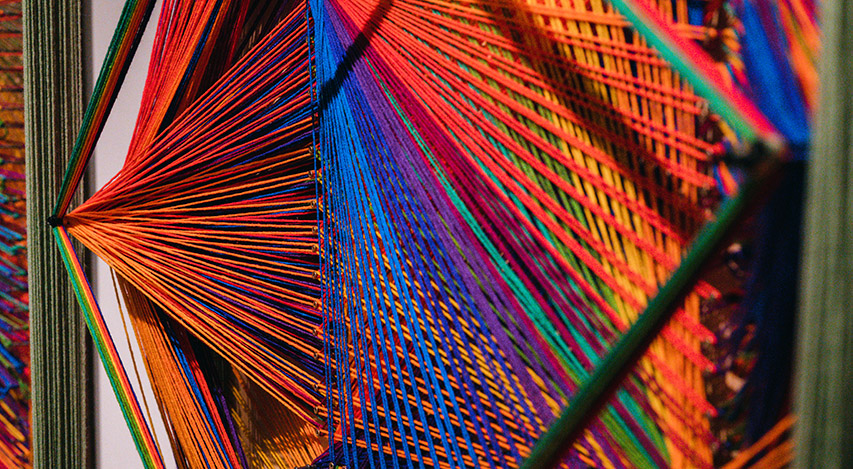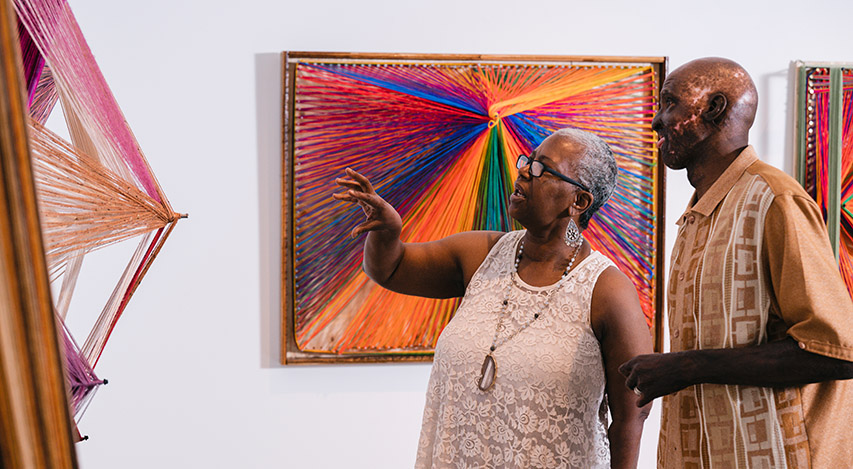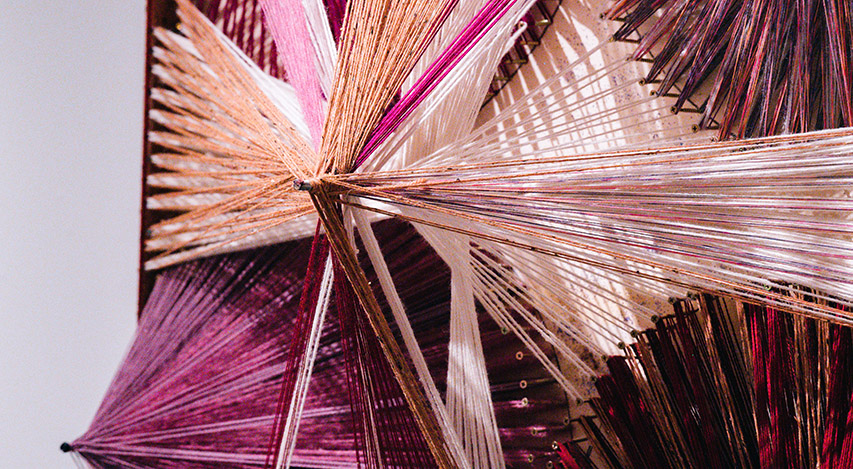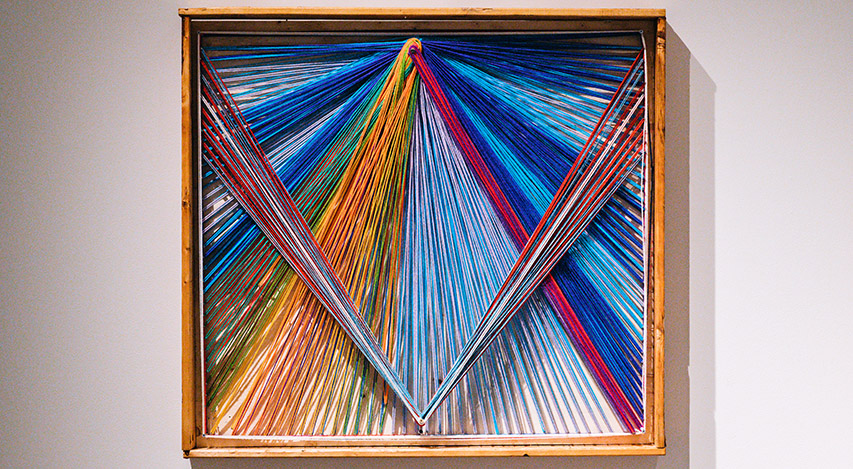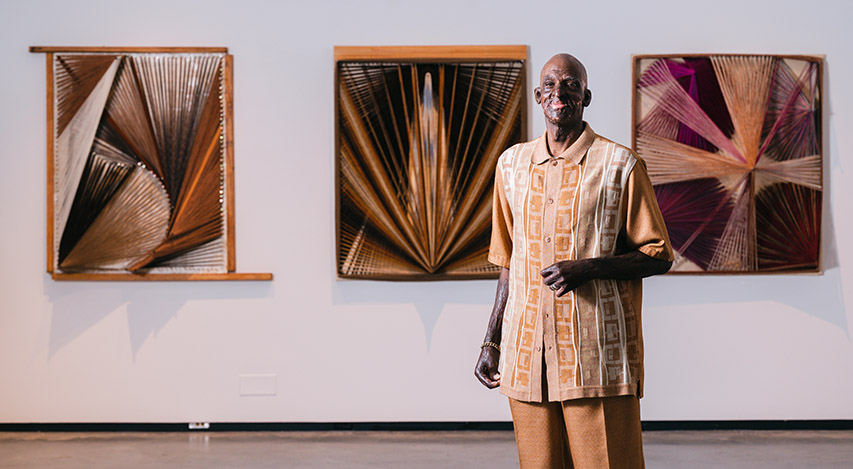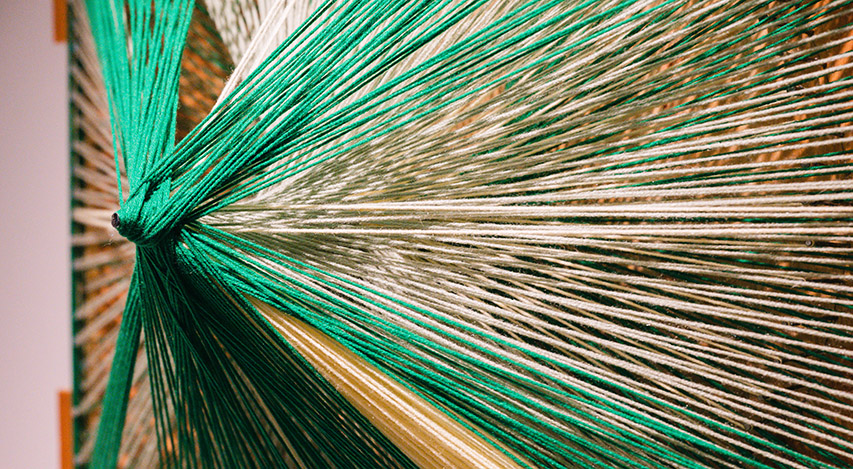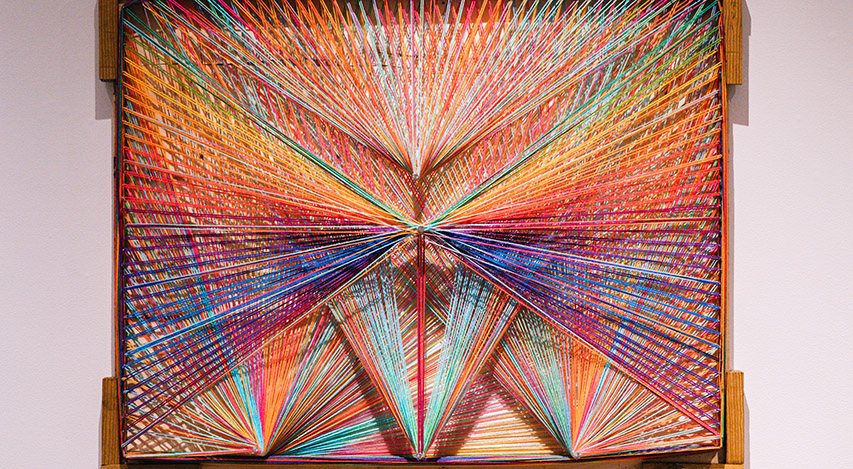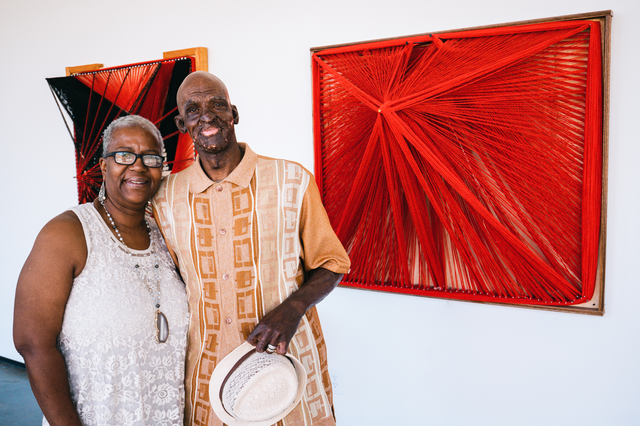Delrico Gibson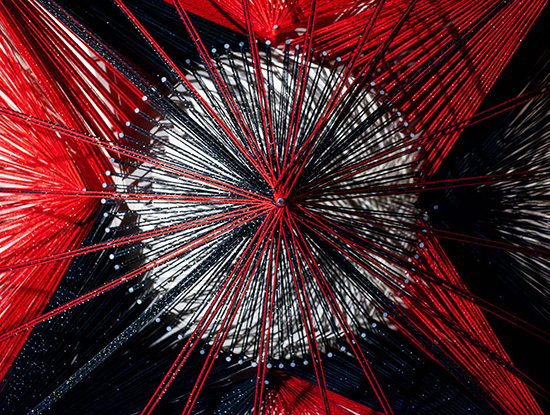 Delrico Gibson Sr., detail from "RED HOT BLACK LOVE," 2023, synthetic and metal fibers, metal, on wood. Dedicated to Jackie Gibson. thought he would never make art again.
Delrico Gibson Sr., detail from "RED HOT BLACK LOVE," 2023, synthetic and metal fibers, metal, on wood. Dedicated to Jackie Gibson. thought he would never make art again.
A devastating gasoline explosion Feb. 29, 2020, left Gibson with burns to his face and upper body. His burns were so severe that they literally reshaped the structure of his bones and fused his fingers together.
Now, three years later, the works of art Gibson has created, in gratitude to the health care professionals who saved his life, will be featured in an exhibition at the University of Alabama at Birmingham.
The exhibition, titled “Strings of Gratitude,” is presented by UAB’s Abroms-Engel Institute for the Visual Arts. The works will be on display from June 9-Aug. 12, with a free opening reception from 6-8 p.m. Friday, June 9.
Gibson, who lives in Clanton, Alabama, describes his works as “symmetric abstract design string art.” After months of treatment, UAB Medicine surgeons, doctors and therapists, and caregivers including his wife Jacquelyne, have helped Gibson regain not only his health but the grip and dexterity needed to create his intricately vivid designs.
Composed primarily of repurposed wood and wound yarn, each work of art on display in “Strings of Gratitude” represents a person who played a vital role in his recovery journey. Those people will be invited to attend the reception to see the works on display.
Composed primarily of repurposed wood and wound yarn, each work of art on display in “Strings of Gratitude” represents a person who played a vital role in his recovery journey. In some cases, Gibson had to read through his medical records and rely on the testimony of his wife and son to recall the weeks after the accident and identify the people who helped him survive. Many of those people are being invited to attend the reception to see the works on display.
AEIVA is proud to host Gibson’s first solo museum exhibition, says John Fields, the Lydia Cheney and Jim Sokol Endowed Director of AEIVA.
“Gibson’s artwork, and his drive to recover the ability to continue creating it, are an inspiration to all who meet him,” Fields said.
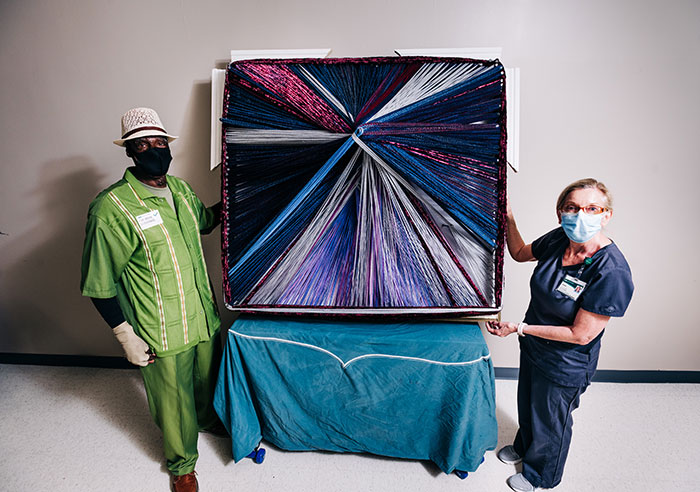 Delrico Gibson with the work he created for his therapist, Diane Coleman, of the Hand Therapy Clinic in UAB’s Department of Orthopedics Hand and Upper Extremities Services.
Delrico Gibson with the work he created for his therapist, Diane Coleman, of the Hand Therapy Clinic in UAB’s Department of Orthopedics Hand and Upper Extremities Services.
Photography: Andrea Mabry
Each large, heavy, wood-backed piece starts with a center point, or main, nail, followed by more nails, wound with thread, then heavier yarn. He listens to smooth jazz on headphones while he is working, and often gifts the one-of-a-kind pieces with a story or poem for the intended recipient.
Works on display will include those dedicated to plastic surgeon René Pierre Myers, M.D., an assistant professor in the UAB Heersink School of Medicine’s Division of Plastic Surgery, who operated on Gibson’s hands, and James Hwang, M.D., director of UAB Medicine’s Burn Center, who used skin from Gibson’s thighs as a graft for his arms, hands and fingers. Gibson also created works for the first responders from the day of the accident, and the doctors in the UAB School of Dentistry who helped him with devices to gradually increase the opening of his mouth after it healed.
Among the first works he created were for Kelly Border and hand therapist Diane Coleman in the Hand Therapy Clinic in UAB’s Department of Orthopedics Hand and Upper Extremities Services. Gibson has had additional surgeries on his hands at Emory Hand and Upper Extremity Center and dedicated a work to his surgeon there. The effort and work used by Gibson in these artworks shows the benefits of hand therapy “and also the amazing perseverance of our patients,” Border said.
